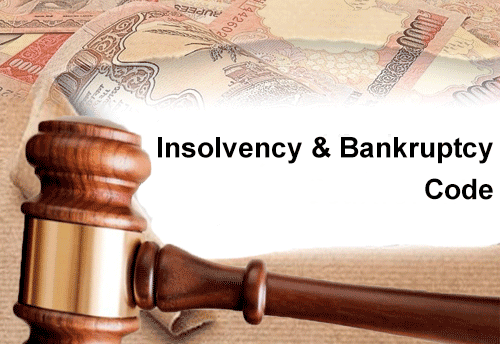Competition Commission clearance in Insolvency Resolution Process in India – Do the acquirers have a choice?
The enactment of the Insolvency and Bankruptcy Code, 2016 (IBC) in India has resulted in large corporate entities queuing up to acquire distressed companies and their assets, put on block following initiation of IBC proceedings. Acquisition of a corporate debtor under the IBC begins with the submission of a resolution plan to the Resolution Professional (RP) by the resolution applicant (acquirer/bidder), followed by the approval of such resolution plan by the Committee of Creditors (CoC) and finally by the National Company Law Tribunal (NCLT). The recent Supreme Court judgement restraining Binani Industries, the parent company of Binani Cement to withdraw from the CIRP after acceptance of the bid of Dalmia Bharat Cement Ltd. has upheld and strengthened the sanctity of the CIRP under the IBC. Let us now see the role of CCI in the CIRP.
Depending upon the turnover or assets of the resolution applicant (bidder) and the corporate debtor (target), as prescribed under the Competition Act, 2002 (Act) and the Combination Regulations framed thereunder, such resolution plans (bids) may require mandatory approval from the Competition Commission of India (CCI). The CCI, till date, has been notified of five (5) transactions involving the acquisition of a corporate debtor under the IBC and has granted approval in two of them so far. However, some ambiguities faced by the prospective resolution applicants (buyers) need discussion.
The elusive ‘binding’ document and “trigger” event for notifying CCI under IBC
Under the Competition Act, 2002 (Act), an acquirer’s obligation to the notify the CCI is triggered upon execution of a binding document conveying an agreement or even a decision taken by the acquirer to acquire control, shares, voting rights or assets.
In this context, one of the earliest uncertainties surrounded as to what would constitute a binding document for a prospective buyer to notify the CCI i.e. whether the submission of the resolution plan or the approval of such resolution plan by the COC?
The CCI’s decisions so far appear to have indicated some clarity on what constitutes a binding document for obtaining CCI approvals in IBC proceedings. For instance, out of the five transactions notified to the CCI, only one (acquisition of Electrosteel Steel Limited by Vedanta Ltd.) has been filed pursuant to the approval of the resolution plan by the CoC.
In the face of multiple resolution plans (acquirers) gunning for the same corporate debtor, the question is whether notifying the CCI, prior to the approval of a resolution plan by the COC would constitute a ‘pre-mature’ filing since, ultimately only one resolution plan would succeed?
From the CCI’s decisional practice so far, we now know that the CCI considers a resolution plan filed by a resolution applicant as a ‘binding document’ for the purposes of filing notice. Had the CCI not considered the resolution plan as a binding document, instead of approving Dalmia’s and Ultratech’s notices (in their proposed acquisition of Binani Cements Ltd.), the CCI would have held the notices as pre-mature and thus invalid.
Way forward:
It is now clear that resolution applicants (bidders) have the choice to notify the CCI either upon filing of the resolution plan with the RP or upon the resolution plan being approved by the COC.
While deciding when to notify the CCI, it needs to be remembered that the Act provides for a “suspensory “regime i.e. transaction cannot proceed without approval by the CCI. This means that irrespective of whether such resolution plan has been accorded final approval by the NCLT as envisaged under the IBC, the acquisition cannot be closed until CCI approval is obtained.
Therefore, it is in the interest of the resolution applicants to ensure that CCI approval is obtained at the earliest, to prevent delay in closing of the transaction, since, theoretically, CCI may take up to 210 working days to clear or block a combination. Vedanta’s acquisition of Electrosteel is a good case in point where although NCLT approval has been obtained, the transaction is being held up because of the pending CCI approval. Perhaps, if Vedanta had notified the CCI upon submission of the resolution plan, it would have already obtained the CCI approval.
On the other hand it may be also be prudent for the resolution applicants (bidders) to await approval from the COC and thus save on the CCI filing fee and ancillary costs on account of the uncertainty involved in any particular resolution applicant being declared successful by the COC.
Ultimately, the stage of obtaining CCI approval is a commercial call which must be taken by a resolution applicant bearing in mind that any apparent cost savings may be offset by losses that may be caused on account of a delayed closing of the acquisition.
Risks involved
Whether the resolution applicant decides to file CCI notice upon submitting the resolution plan or upon obtaining COC approval, utmost care must be taken to ensure that the transaction is not ‘consummated’ in any manner before CCI approval is obtained. Any attempt by a resolution applicant to influence/interfere in the management or operations of the corporate debtor (in any manner) before obtaining requisite CCI approval may be considered as ‘gun-jumping’ and render the resolution applicant liable for penalty under the provisions of Section 43A of the Act.
NOTE- This is the original text of the article recently published in The Business Standard on 25 April 2018 tilted “Ignore CCI at your own peril” . The article can be read here.









